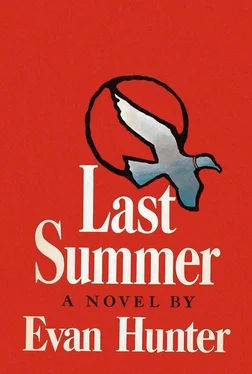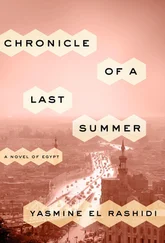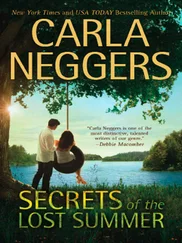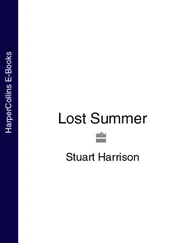David and I said nothing. We both knew what she meant, but we were somewhat startled that she was willing to talk about it, even though we’d agreed to be completely honest with each other.
“Maybe it had to do with touching me,” she said. “And getting me so hot I thought I would faint,” she said, and that was when the three boys appeared on the sidewalk ahead of us. We had just passed the bar, and we were bathed in an eerie disharmony of vivid orange and blue, surprised by Sandy’s frankness, more than a little unsettled by the sudden appearance of the trio ahead. They were standing in a loose-hipped imitation of every teenage hoodlum pose they had ever seen, the perfect stereotype of black leather-jacketed youth, except that they were wearing tee shirts and levis. The image was identical nonetheless, a trite reproduction of evil intent. And because we had been exposed to it so many times before, and recognized it immediately, our response was clichéd as well: immediate fear coupled with a pounding sense of imminent danger, a rising excitement at the prospect of a rumble. We turned without a word to each other and began running. The boat was supposed to leave for Greensward at eleven sharp. It was now close to 10:45, and we had no doubt that the boat was already in and loading passengers. It occurred to me, as we ran up the street away from the ferry slip, that we could very easily miss the boat and be trapped here on the mainland with three specimens who, it was fair to surmise, were not overly interested in discussing illusion, reality, or alienation. I had no idea whether or not they were the same boys who had been ogling Sandy outside the theater before the picture began. But there was an urgency in the clatter of their chase, and I began to think we were making a mistake by running deeper into a town they undoubtedly knew well, rather than heading for the protection of the ferry waiting room and the civilized people boarding the boat for Greensward.
And then — I don’t know what caused it, perhaps it was the influence of the film, perhaps we were all still deeply caught up in the film’s message — a sudden giddiness came over the three of us. As we ran through the deserted streets of the town, we began giggling, and then laughing aloud. Behind us, one of the townies yelled, “Hey, Long Legs, wait up!” and another one shouted, “Give us a peek at you, honey!” and rather than striking terror into our hearts, their words absolutely broke us up. The laughter was a curious thing in that we recognized it might affect our ability to run, and yet we couldn’t stop it. I was developing a stitch in my side, partly from running, partly from laughing, and Sandy was gasping for breath as we rounded a corner and cut across a vacant lot behind the drugstore. “Come on, Long Legs,” one of the townies shouted, “we ain’t gonna hurt you,” and David said, “Not much,” and we all burst out laughing again. “Get rid of them two queers,” one of the boys yelled, and I said, “Hit him with your purse, David,” all of this while we were tearing across the lot and avoiding bottles and piles of ashes and bags of garbage and trying to figure out a way to circle around back toward the ferry slip, laughing wildly. They must have thought we were crazy. Maybe we were. It seemed to me, though, that the reality of the chase, even the reality of the menace it represented, had been diminished by the fact that we had lived it too often before, if only vicariously. How real could these hoods behind us be when they were shouting banalities like, “Come on, honey, we got something for you,” or “Slow down, baby, you’ll love it?” How real could any of this idiotic chase be when we had already witnessed wilder chases on motion picture screens? Laughing, stumbling, our eyes tearing, we came out onto a long dark street flanked on one side by a closed supermarket and on the other by a closed dry-cleaning store, a closed bookshop, and a closed Italian restaurant with a sign announcing the house specialty as veal parmigana. The misspelling on the sign caught my eye as we rushed past, commenting beyond any doubt on the quality of the house specialty and further adding another dimension of fantasy to the chase, an Italian restaurant that could not spell in Italian. Out of breath, David said, “Do we stand and fight?” and Sandy said, “Shit, no,” which caused more laughter, while behind us the hoods were getting more and more agitated. And then, through luck or intuition, we made an abrupt right turn and found ourselves once again on the street with the open bar, its blue and orange neon flashing ahead like some gaudy oasis. “Let’s go, gang!” David shouted, and we began running faster and in dead earnest, though still chuckling with recognition of the absurdity of it all. Behind us, the cleverest of the townies shouted, “Aw, baby, don’t be mean,” and Sandy shouted, “Goodnight, lover,” as we saw the ferry slip ahead. The boat was already in. We boarded it rapidly just as the three hoods came panting onto the dock, standing again in stereotyped tough-guys-hands-on-hips postures while we mingled with the other passengers, and then tauntingly thumbed our noses at them from the quarterdeck. Sandy laughed then, a high blaring hoot that caused some of the other passengers to turn and stare at us, a derisive challenge to the gangsters below. Tossing her golden hair in the light of the pilot house, she looped her arms through ours and led us aft.
We stood on deck all the way out to the island. It was a marvelous night, and we huddled close together and sang songs in very low voices, and once David interrupted to ask Sandy whether she had really almost fainted, and she nodded briefly and quietly and with an odd embarrassment, and we kissed either side of her face spontaneously.
The very next day, the gull flew over our heads without a tether.
The extraordinary thing about it was its simplicity.
It was no secret that I didn’t exactly agree with Sandy about the gull’s intelligence. It seemed to me, in fact, that any number of other birds could have been leash-trained more quickly than he was. And the experience of the day before, when Sandy had succeeded in getting him to fly once — but only once — seemed to back up my earlier findings: the bird was stupid.
Nevertheless, bright and early on the morning of July 23, which was a Sunday, the four of us marched out to the point again, and again wrapped the end of our fishline around the heavy piece of driftwood half-submerged in the sand. It was while we were fastening the other end of the line to the bird’s collar that Sandy got her brilliant inspiration.
“Why do we need the line at all?” she asked.
Without waiting for an answer (we were, in truth, incapable of giving an answer, since this was only eight o’clock in the morning and we were both accustomed to sleeping a bit later that summer, especially on Sundays), she marched directly to the bird while he and we blinked stupidly and together, removed the collar from around his throat, and then backed away from him. David was the first of us to come to his senses.
“Goodby, gull,” he said.
“Shhh,” Sandy said, and signaled to us with her hand, the palm flat, patting the air. The gull peered up at us, unaware for the moment that the collar had been taken from his neck, completely oblivious to his freedom. We backed still further away from him, and he began following us up the beach, walking with that curiously proud gait of his, but never once attempting to fly.
“He is by far the stupidest bird in the world,” I said.
“Shh,” Sandy said again.
“Let’s rush him,” David said.
“No, just be quiet,” Sandy said.
We squatted in the sand.
It was a gray day, heavy with mist that hovered over water and beach, a mist that would undoubtedly be burned off by midmorning. The sand was cool and damp. Far out on the water, a trawler made its slow way north toward Violet’s island. There was a stillness to the point that morning, intensified by the hanging mist. The surf was gentle, washing in against the shore in endless whispering repetition, as tranquil as the water on the bay side. I thought of the film we had seen the night before, and I thought again about reality and illusion, and it seemed to me that even the flat ripples out there were only imitations of real waves. And then I thought about estrangement, not in the movie’s sense, but instead as something you deliberately chose, an isolation you wanted and needed. And I thought, as I sat there between David and Sandy, that the three of us would go on this way forever, in a soft and misty landscape, understanding each other completely without having to say a word. Sitting on the edge of the shore, I was struck by a sense of eternity, the ocean stretching endlessly to distant places I had never seen, the mist wafting in to insulate and protect a very special universe, the nucleus of which was the three of us alone,
Читать дальше


![Маргарет Миллар - Rose's Last Summer [= The Lively Corpse]](/books/384369/margaret-millar-rose-s-last-summer-the-lively-c-thumb.webp)









